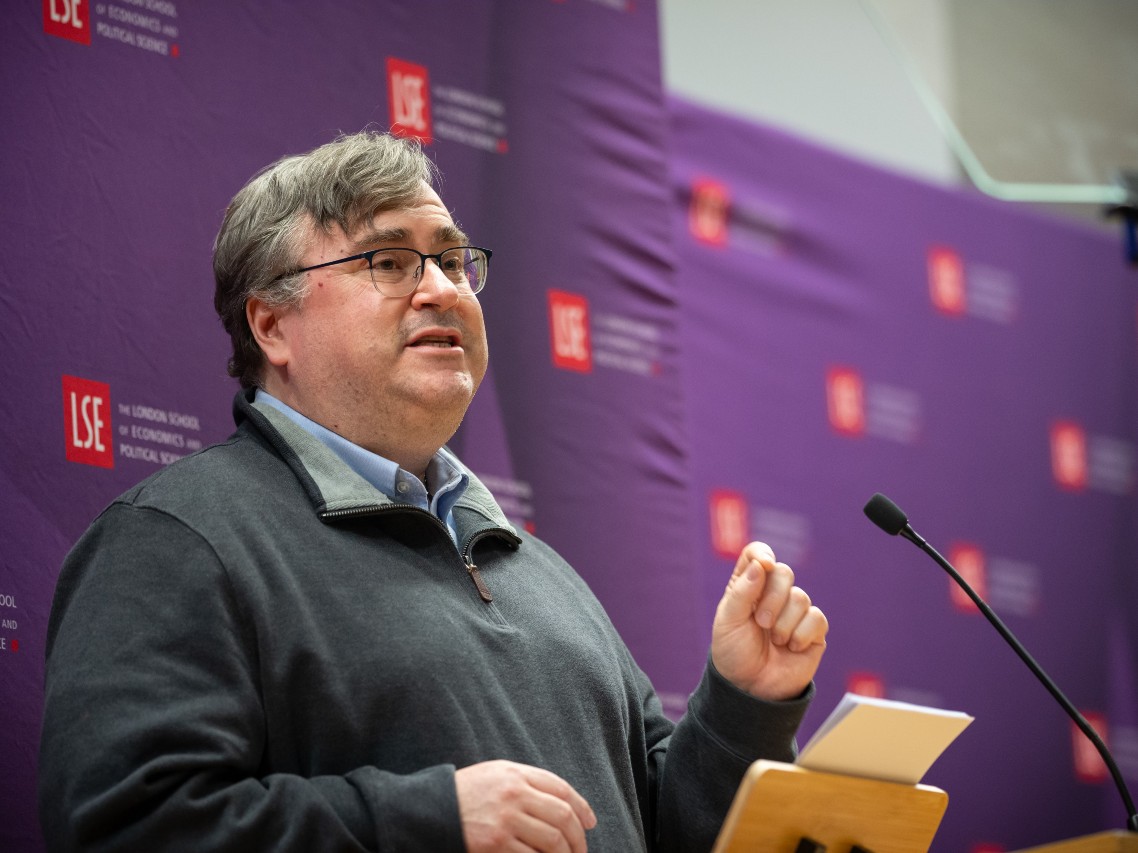 Reid Hoffman gives a lecture at LSE
Reid Hoffman gives a lecture at LSE
Reid Hoffman, co-founder of LinkedIn and Inflection AI, addressed an audience of students, staff, and guests at the London School of Economics and Political Science (LSE) this week. The lecture, chaired by LSE President and Vice Chancellor Professor Larry Kramer, examined the profound societal implications of artificial intelligence (AI) for our world order.
Professor Kramer opened the event by emphasising that, while invention is critical, deployment of this technology at scale requires careful attention to minimise risk and enhance societal benefits. “Inventing things… is the easy part,” he remarked. “Whether [new inventions] benefit the people they should, whether they have significant unintended consequences … is a matter of social science.” He called for a balanced approach, warning that both laissez-faire approaches to development and overregulation represent choices with significant consequences.
Hoffman, known as a pioneering entrepreneur and influential venture capitalist in Silicon Valley, explored AI as a generational technology. He underscored the role of technology in shaping our understanding of the world. “We are more than homo sapiens,” he declared. “We humans are homo techne – humans as tool makers and tool users.”
The discussion focussed on three core questions: the origins of technology’s value, its disruptive potential within societies, and its influence on global dynamics. Hoffman argued that technology must be shaped purposefully with human values to achieve specific outcomes. “We shape it not like clay - but like marble,” he explained. “It requires muscle, tension, and repetition and we must respect and acknowledge its properties while hewing it to our purpose.”
Hoffman went on to address the potential disruptive nature of AI and compared its impact to transformative technologies like the printing press, which revolutionised the dissemination of knowledge but triggered decades of conflict. Similarly, AI’s potential to reshape economies, governance, and international relations is immense, but the transition must be carefully managed.
“Humans… are historically bad at transitions,” Hoffman acknowledged but, “transformative technologies eventually become indispensable.” He argued, “If we harness AI correctly and collectively, society will experience super agency.” This, he claims, will empower, better inform and equip everyone across society even those who rarely or never use AI directly.
Hoffman emphasised the importance of inclusivity, calling on European nations in particular to lead ethical and collaborative innovation. “AI is not a stagnant river,” he said. “It is perhaps our fastest-moving body of water and soon, it will be the broadest and most far-reaching with its tributaries extending throughout society. Like the Nile and Euphrates, it can be the cradle of our civilization - if we continue to build with it.”
The event concluded with a dynamic Q&A session, where Hoffman fielded questions on topics ranging from the ethical dilemmas of AI in healthcare to its geopolitical implications. He stressed the urgency of international partnerships to ensure that AI benefits are equitably distributed while mitigating risks.
The lecture, part of LSE’s commitment to addressing the intersection of social science and technology, left attendees with much to ponder about the future of AI.
For a full recording of the event, please visit LSE’s YouTube channel.
For a podcast of the event, please click here.